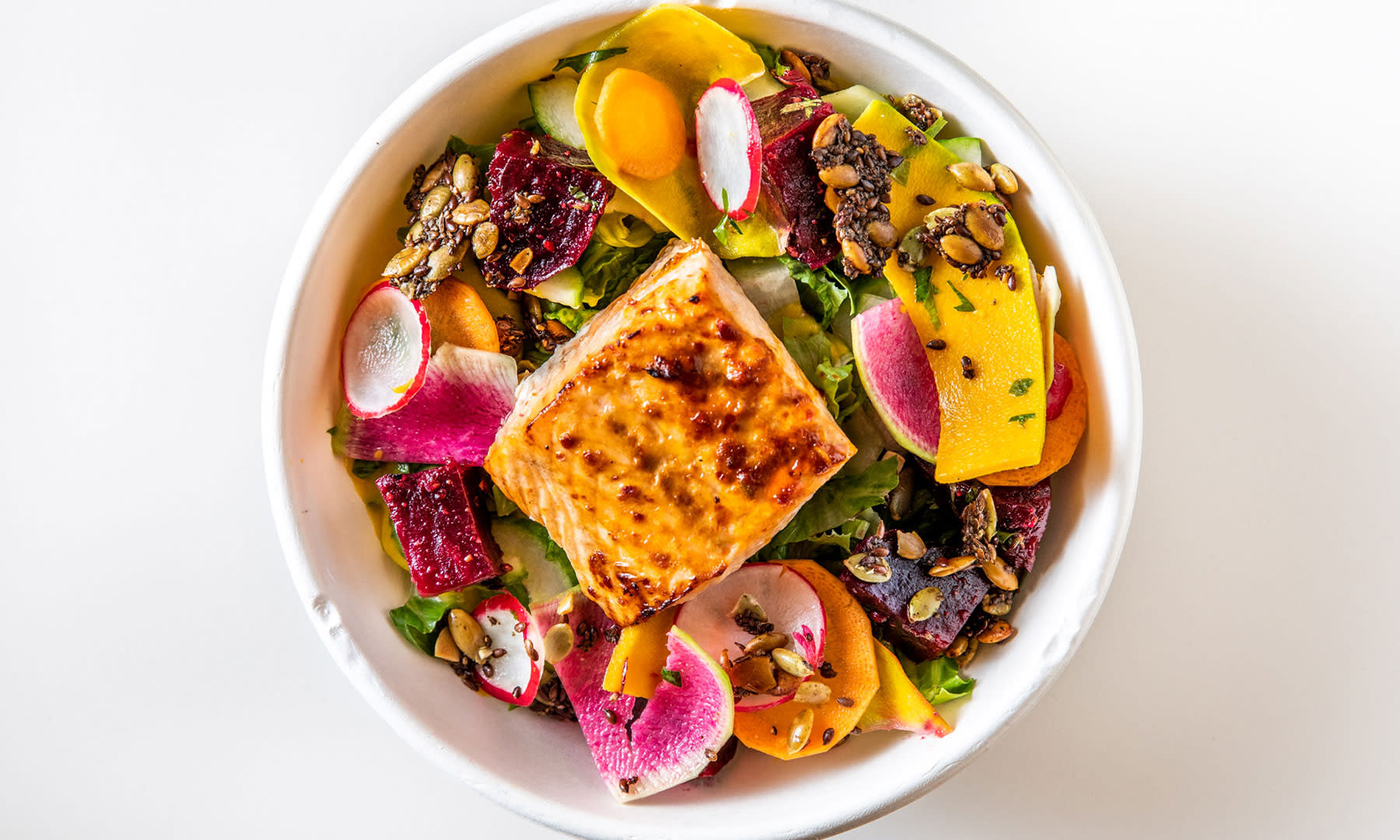Diary / Wellness / Sep 26, 2022
INDAY’s Basu Ratnam Wants You to Feel Better
Written by: Damara Pratt

Basu Ratnam is the founder and CEO of INDAY, a group of three Indian and Ayurvedic-inspired fast-casual restaurants in New York City, including a quick to-go stand in a food hall full of professionals operating under limited lunch breaks. On the surface, the fact that INDAY’s mindful menu is located in neighborhoods flooded with some of the busiest crowds in New York might garner surprise. For Ratnam, helping people who need to slow down is the very point. Read on to learn how he ensures holistic health is accessible for all, introduces simplicity to the frequently chaotic wellness movement, and empowers his team to be their best selves.
What led you to start INDAY?
I was raised in an Indian American household by first-generation parents, and grew up around the dinner table. Food was a way of keeping the family together and preserving our heritage. My mother was a psychology professor who set my foundation for holistic health and wellness. She was always peppering Ayurvedic traditions throughout my upbringing, and even wrote a book called Spirit vs. Scalpel: Traditional Healing and Modern Psychotherapy. It was clear to me from an early age that physical and spiritual health were linked.
There’s a reason why wellness has become a big trend. Our society needs it. Too many are sick, distracted, and operating under a diet that has been misled. When I was in college and thinking about how I wanted to live, I went back to my mother’s lessons about food as medicine. My goal was to build a career on making holistic health accessible for all.

How does INDAY fulfill your take on wellness?
Wellness is about creating a life that is flourishing by becoming aware of our innate spiritual, emotional, mental, and physical paths. It’s all about balance: the relationship between food and your microbiome and the relationship between your mind and empathy.
We designed INDAY as an answer to the two poles of the wellness movement: on the high end, aspirational, expensive, and superficial trends, and on the other end, a sort of new age, hippy, dated version. INDAY is truly for everyone—it offers food that’s truly good for you with flavor profiles Americans can understand, each restaurant is located in one of the busiest neighborhoods of Manhattan. You don’t have to know that our menu has no refined sugar, no dairy, no gluten, and its ingredients never come out of a plastic bag. You just have to be in our welcoming space, eat food that tastes good, and take a momentary respite.

What do you love most about what you’re doing today?
Without a doubt the most important thing that I do is make it easy for people to feel better. Although wellness can be chaotic and misleading, we keep it simple. We don’t do big marketing campaigns. Instead, we spend a lot of time with our team. We teach them how to eat for a more productive digestive biome, how to find their leadership voice, and how to foster empathy. We do mindful breathing in the morning, compassion exercises, have health challenges (like a week without soda), and offer gym membership subscriptions. When we empower our team to be happier, they’re more productive and emotionally aware. We’ve become a better company and a better community.

Current Mission:
Make it easier to help people feel better by using ancient wisdom for modern wellbeing.
Morning Routine:
Because the body experiences an increase of cortisol when it wakes up in the morning, I try to jump straight out of bed. I’m over thirty and have a herniated disk, so I have a whole mobility routine, including yoga stretches to stay limber. Then I meditate for half an hour, make a concoction of tea, and work out. Sometimes I journal, sometimes I don’t. Our whole team is trying to journal more.
Bedtime Routine:
I’m not very good at not thinking about work at the end of the day. Two hours before I go to bed, I try to stop eating, put down my phone, and use low lighting to prepare for night. Then I meditate and catch up on reading.

What Makes You Feel Your Best:
In line with the Ayurvedic philosophy, eating mindfully keeps me calm, and brings to my awareness how food makes me feel afterward. Another big part of the ideology is what the body needs in the winter verses the summer. For winter, cooked vegetables are easier to break down, and the focus is on probiotic foods with immunity properties. In the summer, your body craves more raw, hydrating foods and needs more of a jolt. Our society often eats in a busy, frantic state. With just a little time, there’s a better way.













































 Miracle Balm
Miracle Balm
 Just Enough Tinted Moisturizer
Just Enough Tinted Moisturizer
 What The Foundation
What The Foundation


